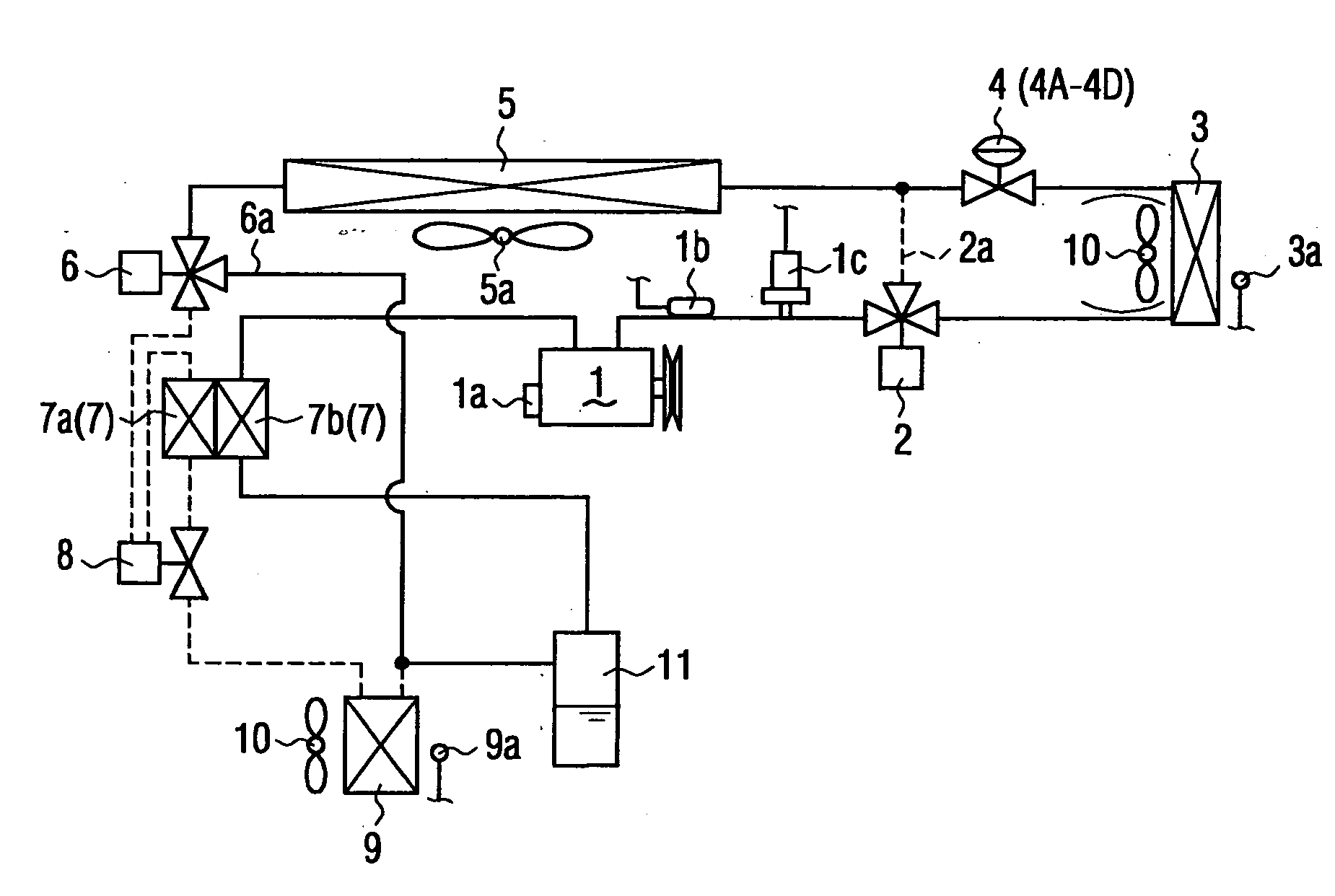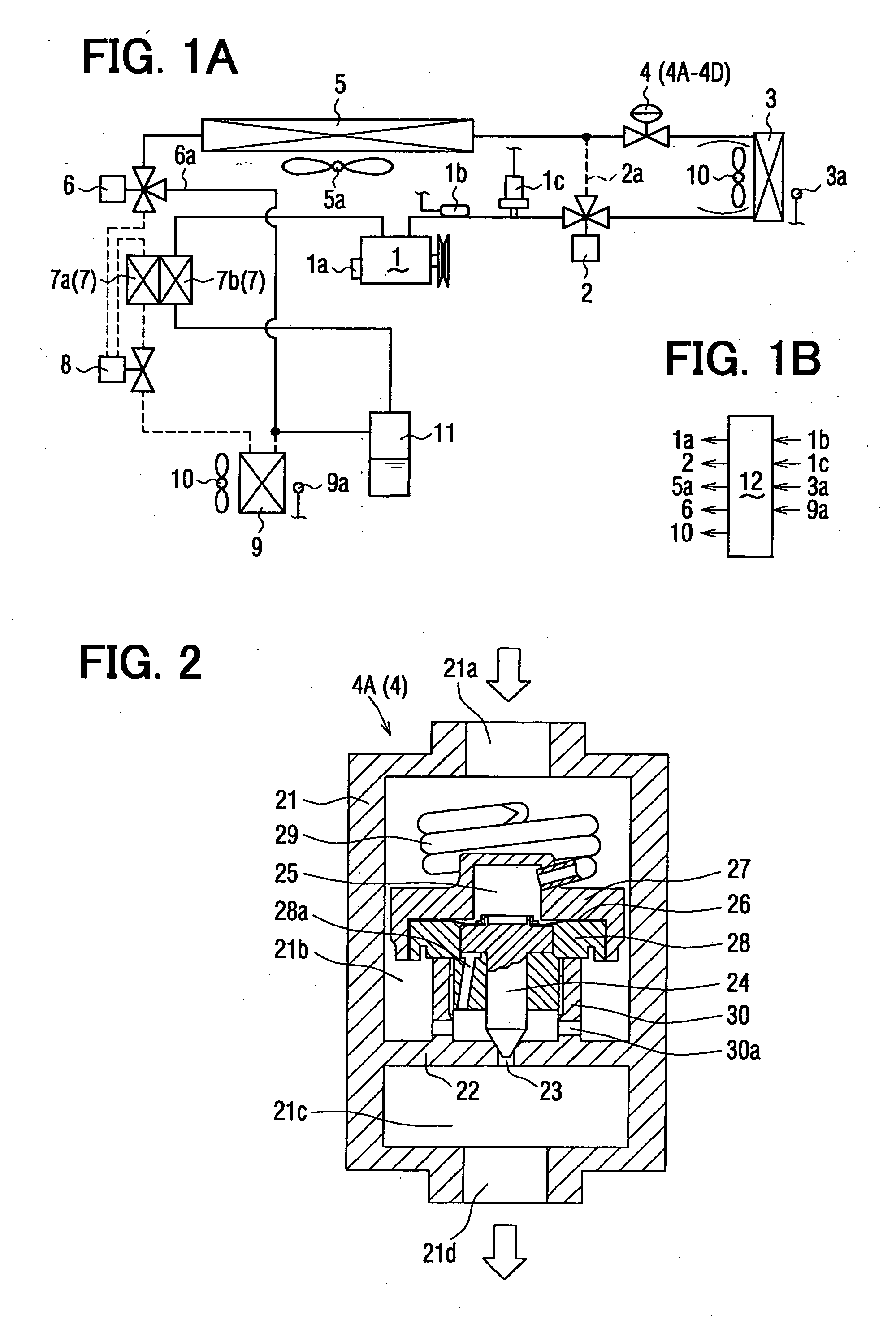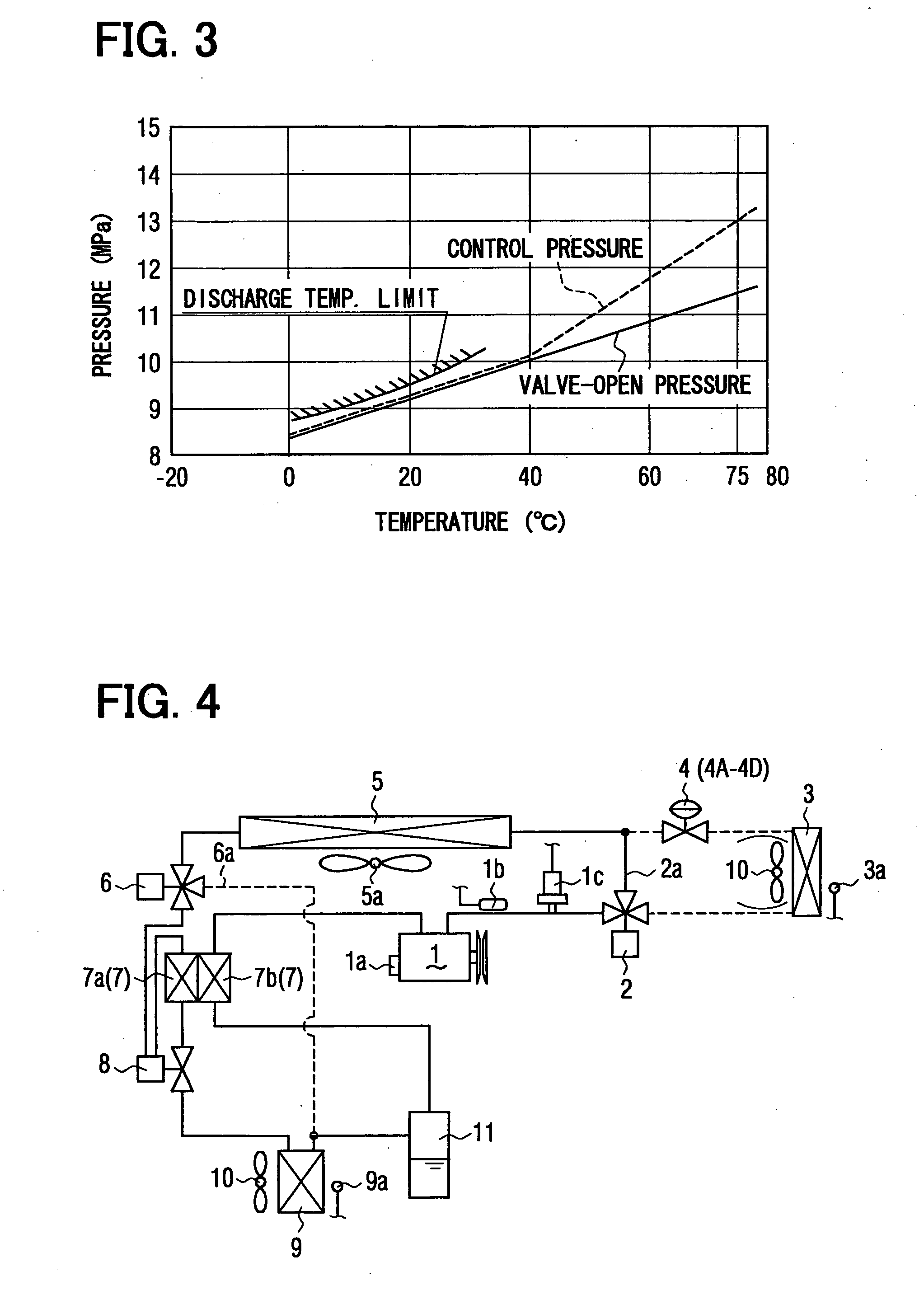Pressure control valve and vapor-compression refrigerant cycle system using the same
a technology of vapor-compression refrigerant cycle and pressure control valve, which is applied in refrigeration components, transportation and packaging, light and heating equipment, etc., can solve the problems of increasing the cost, increasing the cost, and increasing the flow amount of refrigerant flowing through the heat pump cycle system. achieve the effect of improving the heat exchange capacity of the refrigerant radiator
- Summary
- Abstract
- Description
- Claims
- Application Information
AI Technical Summary
Benefits of technology
Problems solved by technology
Method used
Image
Examples
first exemplary embodiment
[0028] In the first exemplary embodiment, a mechanical expansion valve 4A is typically used as a pressure control valve 4 for a vapor-compression refrigerant cycle system, for example, a supercritical heat pump cycle system. In a heating operation, refrigerant flows along the solid line shown in FIG. 1A in the vapor-compression refrigerant cycle system when the vapor-compression refrigerant cycle system is used for a vehicle air conditioner. As an example, a supercritical heat pump cycle system is used as the vapor-compression refrigerant cycle system, and CO2 is used as the refrigerant in the supercritical heat pump cycle system.
[0029] A compressor 1 for compressing gas refrigerant is driven by a driving force from a vehicle engine. High-temperature and high-pressure refrigerant discharged from the compressor 1 flows to an interior heat exchanger 3 (i.e., gas cooler, refrigerant radiator) through a first electrical three-way valve 2 in the heating operation. The interior heat exch...
second exemplary embodiment
[0060]FIG. 5A is a sectional view showing a mechanical expansion valve 4B (pressure control valve 4) at a valve-closing state. In this embodiment, when the outside air temperature is lower than a low value, the valve port 23 is opened by an opening degree, so that refrigerant flows at a start time of the compressor 1 by an amount equal to or larger than a necessary smallest amount.
[0061] In the mechanical expansion valve 4B, the structures having functions similar to those of the mechanical expansion valve 4A are indicated by the same reference numbers. A transmission rod (push rod) 31 is connected to a valve body 32, and the valve body 32 is disposed in the downstream space 21c of the valve port 23 to open and close the valve port 23 from the downstream space 21c by a biasing force of the coil spring (elastic member) 33.
[0062] Furthermore, the transmission rod 31 contacts the valve body 32 at its tip ends. When the temperature around the sealed space 25 is lower than a predetermi...
third exemplary embodiment
[0069]FIG. 6 shows a valve-closing state of a mechanical expansion valve 4C (4) used in a heating operation according the third exemplary embodiment.
[0070] In the above-described first exemplary embodiment, when the valve port 23 is closed by the valve body 24, refrigerant does not passes through the mechanical expansion valve 4A and refrigerant does not circulate to the interior heat exchanger 3. However, in this embodiment, a bypass hole 22a is provided in the partition wall 22 in a mechanical expansion valve 4C (4), as shown in FIG. 6. In the mechanical expansion valve 4C, the other structure may be formed similarly to that of the mechanical expansion valve 4A.
[0071] In the mechanical expansion valve 4C (4) of this embodiment, a predetermined refrigerant flows through the bypass hole 22a even when the valve port 23 is closed by the valve body 24. Gas is sealed in the sealed space 25 by a density that is in a range between a saturated liquid density at a refrigerant temperature ...
PUM
 Login to View More
Login to View More Abstract
Description
Claims
Application Information
 Login to View More
Login to View More - R&D
- Intellectual Property
- Life Sciences
- Materials
- Tech Scout
- Unparalleled Data Quality
- Higher Quality Content
- 60% Fewer Hallucinations
Browse by: Latest US Patents, China's latest patents, Technical Efficacy Thesaurus, Application Domain, Technology Topic, Popular Technical Reports.
© 2025 PatSnap. All rights reserved.Legal|Privacy policy|Modern Slavery Act Transparency Statement|Sitemap|About US| Contact US: help@patsnap.com



